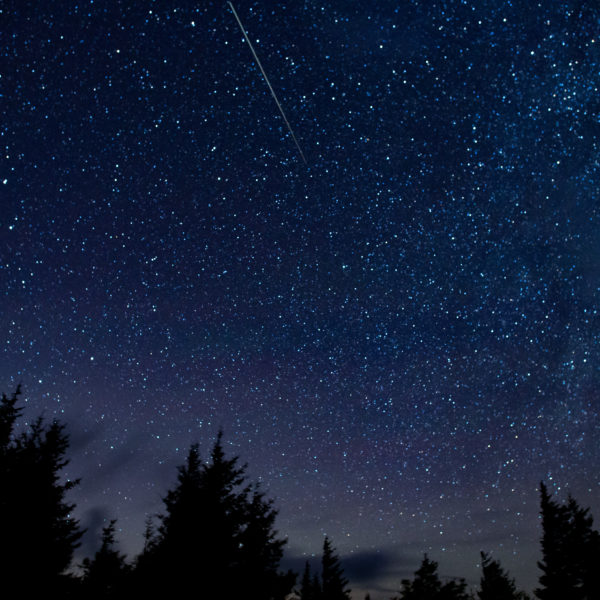TORONTO, Aug. 10, 2020 – The Perseid Meteor shower this week will offer stargazers a brilliant show of 40 to 50 meteors per hour at its peak, say York University astronomers.

A meteor streaks across the sky during the annual Perseid meteor shower. Photo Credit: (NASA/Bill Ingalls)
This light show comes about annually as Earth orbits and plunges through a trail of debris left behind by the Swift-Tuttle comet. The meteors are small grains of dust and rocks that were originally part of this comet, which orbits the solar system once every 133 years leaving a trail of debris behind.
The best time to view the meteor shower is late evening on August 11 and into the early morning of August 12.
Faculty of Science Professors Paul Delaney, Elaina Hyde and Jesse Rogerson are available to discuss what meteors are, how they are formed, why it is called the Perseids, and how to best see this annual meteor shower, including:
- Where to get the best view, such as a location away from city lights, in a park or rural area 30 or 40 minutes outside of Toronto. Clear skies are also a must.
- The best time to view it. The darker it is outside the better for optimal observing. While you can start to see the meteors well after sunset, staying up until beyond midnight is the best.
- Plan to spend an hour or 90 minutes watching the night sky and allowing your eyes a chance to adjust to the darkness. That way you are likely to see more meteors.
- Are binoculars or a telescope needed? No, just your eyes.
- How to view it safely. Bring a charged cellphone, a flashlight, a blanket or two and a friend. Always let someone know where you will be and remember to physically distance while watching the display overhead and wear a mask if distancing is not possible.
-30-
York University champions new ways of thinking that drive teaching and research excellence. Our students receive the education they need to create big ideas that make an impact on the world. Meaningful and sometimes unexpected careers result from cross-disciplinary programming, innovative course design and diverse experiential learning opportunities. York students and graduates push limits, achieve goals and find solutions to the world’s most pressing social challenges, empowered by a strong community that opens minds. York U is an internationally recognized research university – our 11 faculties and 25 research centres have partnerships with 200+ leading universities worldwide. Located in Toronto, York is the third largest university in Canada, with a strong community of 53,000 students, 7,000 faculty and administrative staff, and more than 300,000 alumni. York U's fully bilingual Glendon Campus is home to Southern Ontario's Centre of Excellence for French Language and Bilingual Postsecondary Education.
Media Contact:
Sandra McLean, York University Media Relations, 416-272-6317, sandramc@yorku.ca

